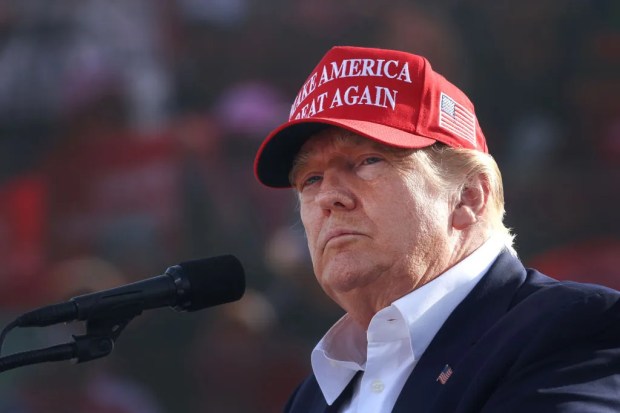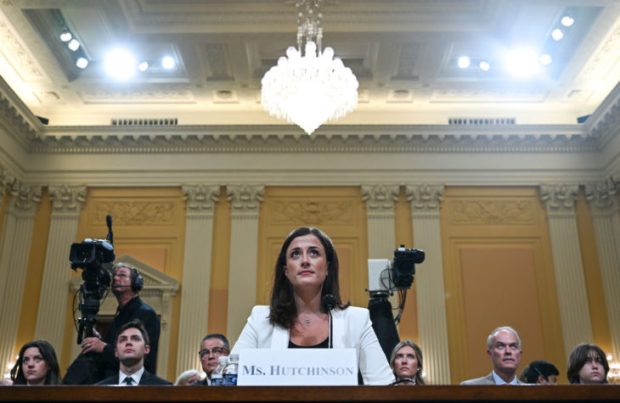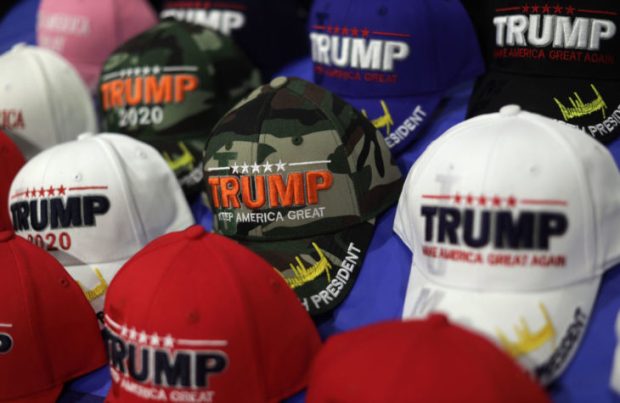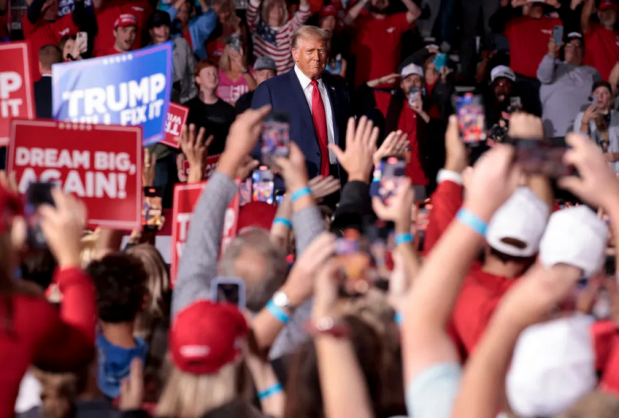Donald Trump has struck again. Just as the GOP was finally shifting attention away from its anemic midterms performance, there was Trump having a little anti-Passover supper at Mar-a-Lago with evil talking fetus Nick Fuentes and more recent-vintage antisemite Kanye West. Trump later claimed he had no idea who Fuentes was, which is to say a Holocaust denier and a leading white supremacist. Topics of conversation at the stately dinner reportedly included Ye’s upcoming presidential run and whether Kim Kardashian is a *****.
And really, I mean really, wasn’t it just déjà vu? Trump dining with racists was like a flashback to his time in the White House when you would turn on the news in the morning and have no idea what the hell you would find. Did he just tweet insults at a baby? Or threaten to nuke Angola? Back then, journalism had a kind of madcap secret-Santa quality, a sense of mystery over what fresh mania you would get and what rando would bestow it upon you. (A threatened lawsuit from Anthony Scaramucci?! Thank you!)
So I suppose the microscopically thin silver lining here is that Trump can still surprise. And yet…it meant breaking bread with a guy who once compared Jews to cookies in an oven. Some have speculated that Trump was essentially set up, that Ye brought along Fuentes to embarrass him. And while that may be true, you also don’t just stroll into Mar-a-Lago and get a table like it’s a Friendly’s. Trump is a former president with Secret Service protection; even if he didn’t know who Fuentes was, surely some of those who helped arrange the dinner did. And so the result has been painfully familiar: the GOP dragged as racist once again courtesy of Mr. Stand Back and Stand By.
Donald Trump was often said to be a transactional president. He might have had genuine beliefs, especially on his pet issues like trade, but he viewed politics chiefly as an amoral means of paying back constituents. For conservatives, this yielded some impressive dividends. Pro-lifers voted for Trump so he put three of their judicial favorites on the Supreme Court. Evangelical Christians backed him so he enacted an Obamacare conscience rule and deregulated faith-based health plans.
But Trump’s brand of transactionalism comes with a catch: its contracts are steeply slanted in his favor. Their clauses allow him to pull out at any time and viciously attack the other party on Twitter. The unstated requirement is that you always show loyalty, with even perceived wobbles liable to be viewed as a breach. For those of us not employed in Trumpworld, this can be fun to watch, especially when it’s applied to a loudmouth like Anthony Scaramucci or a warmonger like John Bolton (“John, is Ireland one of those countries you want to invade?” Trump reportedly taunted Bolton during a meeting with the Irish prime minister in what’s still one of my all-time favorite Trump moments). Less so when Trump went after better men like John Kelly and Jeff Sessions.
Yet Trump’s most important transaction was always with his voters and the institutional Republican Party that elected him. The terms of this deal were more general: you support me, I’ll win and help you. There was also no breach of contract clause here: Trump couldn’t just trash his own electorate or the machinery that powered his campaigns. Unlike with, say, Mick Mulvaney, he was not the senior partner in this relationship. He ultimately had no choice but to submit to those willing to pull the lever for him, even if, as he reportedly griped about the January 6 rioters, he thought they were dressed a bit shabbily.
But if Trump is going to treat politics like a transaction, then maybe everyone else should do the same. Maybe after the Fuentes flap it’s past time for a stark reappraisal of this partnership. What has Trump done for us lately? He won the 2016 election, true, and had substantive successes in the White House. But then there’s little question he was a drag in the 2022 elections, weighing down candidates he endorsed by an average of five points, according to Nate Cohn. Why should conservatives accept those kinds of losses? And why should they allow the damage to their brand that’s been done because he went and supped with zygote-Himmler?
Here’s a dirty little secret of politics: it’s not just Trump who’s a cold transactionalist. The Republican Party (and the Democratic Party for that matter) is a sprawling, ruthless, bottom line-obsessed business syndicate, determined at all costs to turn donor investments into election wins. They sidled up to Trump only when it became clear he could drive out voters, and now that his moment has passed, they’re looking to move on. Such were the terms of the deal. So why shouldn’t everyone else do the same? Why stick with the wheezing orange jalopy when you could cash it in for the sleek new model up the Florida highway?
In a republic, the people don’t owe their leaders anything. And as Trump now calls for Kari Lake to be “installed” as governor of Arizona, as his Truth Social account continues to fume, it’s difficult to see what benefit there is to any of this anymore. Conservatives have too much to worry about — our cities vitiated by drugs and crime, our schools brought low by woke ideology and diminished standards — to spend any more time on the distractions of one man. Let alone a racist Friendsgiving.
The post The Trump transaction is now over appeared first on The Spectator World.



















